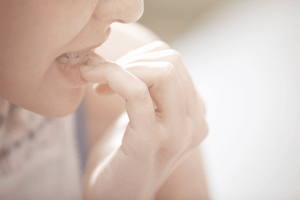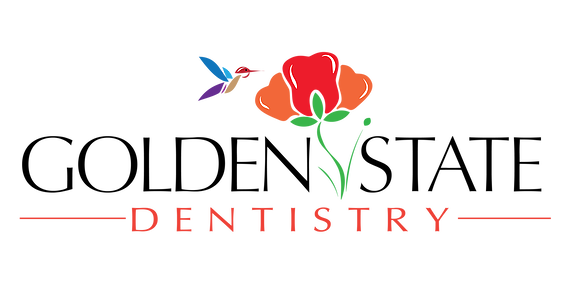
There are many factors that contribute to poor oral health, including bad habits such as nail biting, smoking, and using your teeth to open bottles. Here is a list of ten common habits that could wreak havoc on your teeth.
1. Nail Biting
This nervous habit can chip teeth and impact the jaw, as well as expose your mouth to the bacteria under your nails. To reduce nail biting, paint your nails with bitter nail polish or practice stress management techniques (e.g. medication and exercise).
2. Using Teeth As Tools
When you use your teeth for something other than what they are designed for, such as using your teeth to open a bottle or to cut off a price tag, you run the risk of accidentally cracking your teeth or injuring your jaw. Keep real tools handy, like a bottle opener and scissors, so you are not tempted to use your teeth.
3. Chewing Ice Cubes
The rigidity and cold temperature of ice can cause teeth to fracture and cause damage to fillings and other dental restorations. To avoid this habit, drink through a straw or drink chilled beverages without ice.
4. Frequent Snacking
When you eat, cavity-forming bacteria feasts on leftover food particles in your mouth and then produces acid, which erodes your enamel and leads to decay. Instead of frequent snacking, eat balanced, protein-rich meals and drink plenty of water to wash away leftover food particles.
5. Biting and Chewing Foreign Objects
Most of us have chewed on the tip of a pencil or eyeglasses when concentrating on a difficult task. This puts a lot of pressure on the teeth and could cause teeth to crack or shift. Those objects can also carry germs that can lead to infection in the mouth. Instead of chewing inanimate objects, chew sugar-free gum or veggies to keep your mouth occupied.
6. Thumb Sucking
Kids, who engage in thumb sucking after their permanent teeth have developed (around age 5-6), run the risk of permanently altering their tooth and jaw structure. Keeping your children's hands busy is one way to help wean them off of their thumbs so their teeth develop normally.
7. Teeth Grinding
Teeth grinding (or bruxism) can happen during the day or while you sleep and is usually caused by stress and anxiety. Teeth grinding can wear down your teeth and expose them to decay. Talk to your doctor about a mouth guard, therapeutic Botox, or practice stress-reducing exercises.
8. Brushing Too Hard
Aggressively brushing your teeth can irritate the gums, cause gums to recede, erode tooth enamel, and lead to tooth sensitivity. To prevent brushing too hard, choose a toothbrush with soft bristles and make sure to replace your toothbrush every 3-4 months or when bristles show signs of wear.
9. Smoking
Smoking not only impacts your heart and lungs, but also damages your oral health. Smoking puts you at higher risk of gum disease, as well as causes tooth discoloration, bad breath, loss of taste, tooth decay, tooth loss, and oral cancer. Your dentist can work with you to mitigate the effects of smoking, but quitting is the best solution.
10. Heavy Drinking
Alcohol dries out the mouth, preventing saliva from washing away bacteria, causing bad breath and putting your teeth at greater risk of developing cavities. Furthermore, alcohol is acidic and; thus, wears away the enamel. Reduce your alcohol intake to no more than one drink a day for women and two drinks a day for men, or opt for carbonated sparkling water instead.

.jpg?width=712&name=GSD-Scalloped-Tongue-Causes-and-Treatment-Blog-01.27.2210.21.21%20(1).jpg)











.jpeg?width=425&name=GSD-How-to-Combat-Dental-Plaque-07.22.24-2%20(1).jpeg)



